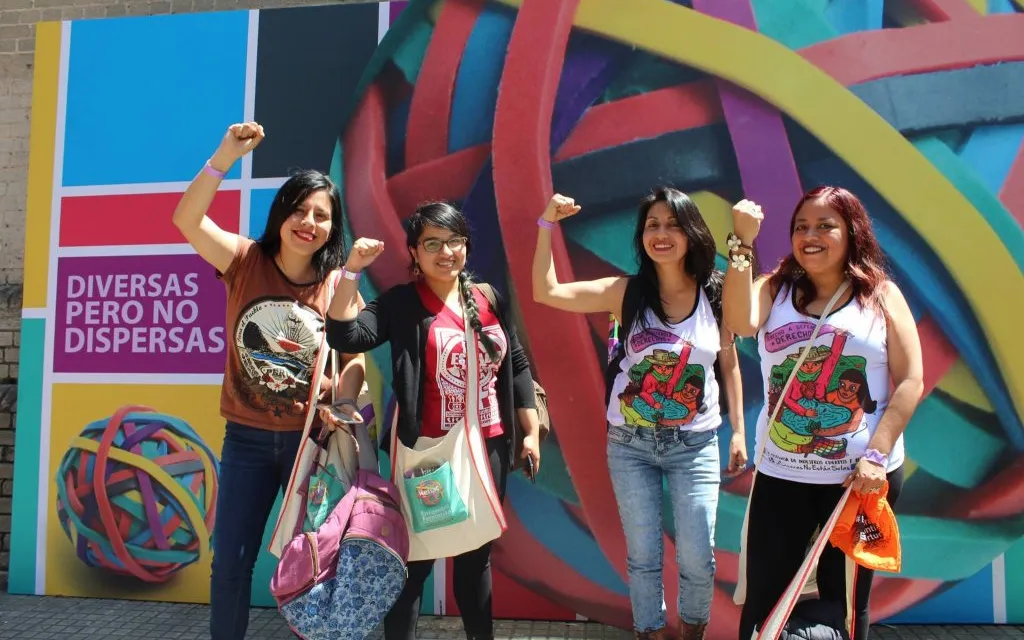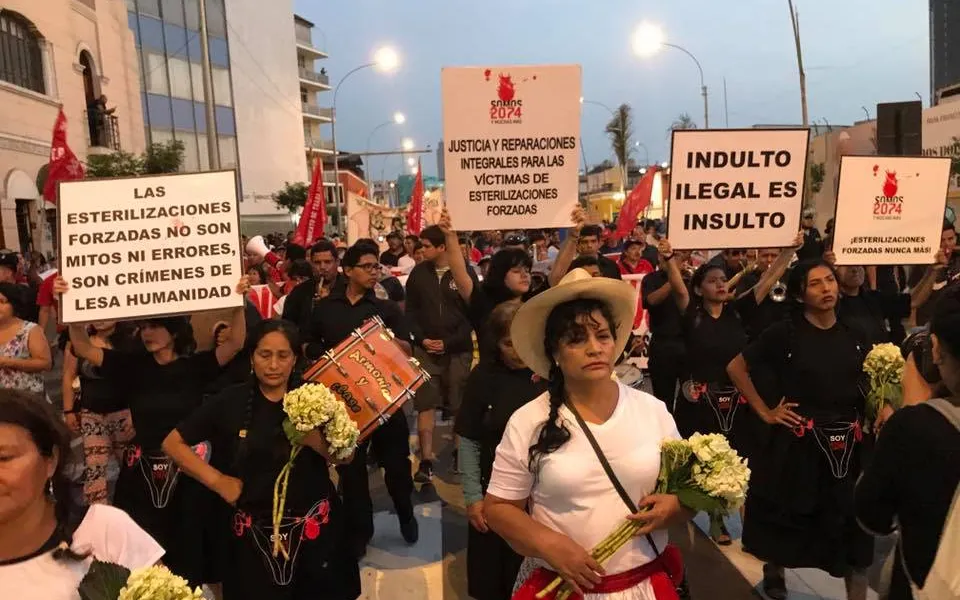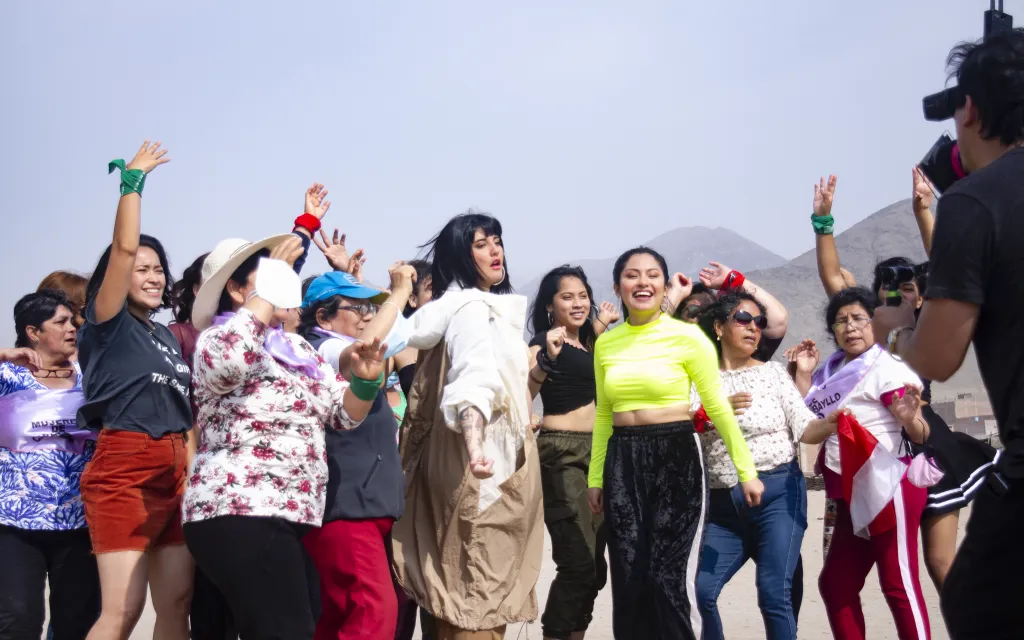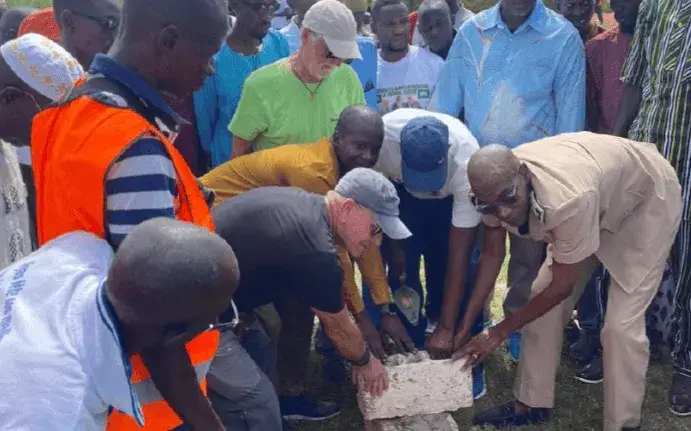To educate women and end the beliefs that foster sexism and violence, the campaign offers workshops and actions to educate on equality and dismantle the myths of romantic love.
Over 5,500 reports of disappearances of women, 330 attempts at feminicide and 131 murders are the figures that 2020 registered in Peru. #VivirSinMiedo (Living without fear), wants to prevent these alarming data—it’s a campaign that aims to end sexism and gender violence by educating and empowering women.
Driven by Demus and Asociación Kallpa and with the collaboration of Entrepobles and Enraíza, among other social entities, the project was born within the framework of the prevention agreement of the Spanish Agency for International Development Cooperation to combat the high rates of violence against women in Peru.
The campaign takes a local grassroots education approach to empower women by making the violence they suffer visible. "The goal of #VivirSinMiedo is to say that we want to be able to walk alone down the street, to be able to travel or to be able to dress however we want without being in danger of not getting home," explains Entrepobles project technician Clara Ruiz.
Through workshops, media such as radio, social media and ‘artivism’, the campaign wants to involve young people in eradicating sexist and gender-based violence. Through murals and performances, they seek to demystify romantic love, such as with the action scheduled for February 14 that finally could not be held due to Covid-19: “Fortune tellers on the street offered to tell you who the love of your life is, and they gave you a mirror. It's very symbolic, but it's the way to show that you don't need a romantic partner", Ruiz claims.
Workshops, not only for women but also for men, make up the roadmap of #VivirSinMiedo. Entrepobles notes the need to deconstruct the whole of society: "We must also work with men, otherwise part of society doesn’t change. We will deal with new types of masculinity or non-hegemonic masculinities with young people, but also teachers, workers, justices of the peace, and so on, because they’re the ones who have to materialise the legislation, and they’re a very important part of society in general”, they explain from Entrepobles.
Gender-based violence: a structural problem
The number of murders and disappearances is not the only thing that make one shudder. Over 30% of those polled in Peru believe that women dress to provoke and almost 30% of women would be willing to have sex if their partner wants to.
For thirty-three years, Entrepobles has been involved in these struggles in Peru, caring for female victims of violence and demanding justice and a dignified recovery for women. Forced sterilization or lack of sexual and reproductive rights show the need for efficient and appropriate affective-sexual education for young women.
However, a change in legislation is needed because abortion is only guaranteed if it is therapeutic, although as the entity points out, the correct protocol is not being followed. In addition, rape is not an accepted reason for abortion, causing the number of pregnant women to increase.
According to the organisation, harassment on the street, on public transport, in schools by teachers or violence within the couple, aggravated during the pandemic and confinement, are common acts in the daily lives of women. “The plan against violence from 2015 is more extensive than ours, because it talks about gender violence and not family violence, and it also encompasses violence within businesses, for example. The legislation is very powerful, but it’s not complied with," laments Ruiz.
Indigenous and peasant women also have their own struggle: being criminalised very differently from men, facing powerful entities to preserve their culture. In addition, in Peru they are fighting against the fundamentalist movement that emerged a few years ago in the country, a right-wing movement linked to the traditional church that tried to curb the inclusion of sex education in the school curriculum under the slogan 'Con mis hijos no te metas' (‘Don’t mess with my children’).
‘Mujer Montaña’, a song to empower women
One aspect of the #VivirSinMiedo campaign is the song ‘Mujer Montaña’ (‘Mountain Woman’), which boasts an empowering rhythm and lyrics and the voices of Wendy Sulca, Susana Baca and Marié, well-known artists from Peru, in an attempt to reach young people. With lyrics like "I don't want anyone in life to tell me what to do", "I show what I want, whatever I please", "we want to stay alive", or "love doesn't hurt", they want to claim the rights of women.
In addition, they have made people take ownership of the song by singing, dancing or reciting some of the lyrics, and will create a video with these clips to celebrate 8M. “The idea for the song comes from the Andean worldview. Mountains have strength, energy and freedom. We wanted to run a campaign showing the power and strength of women instead of victimising them”, says Ruiz. You can listen to the song in this video.









Add new comment